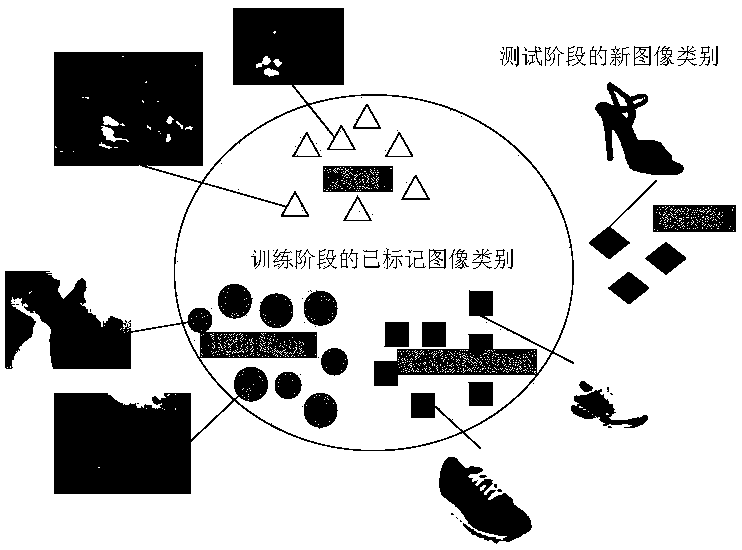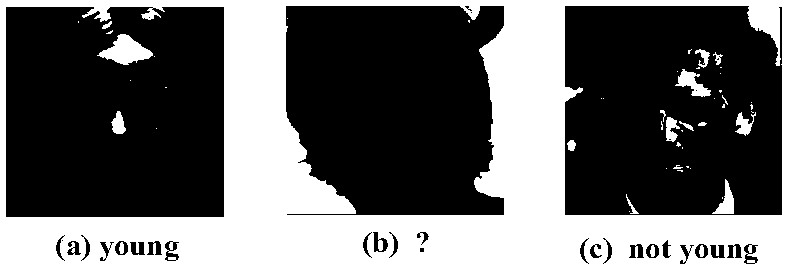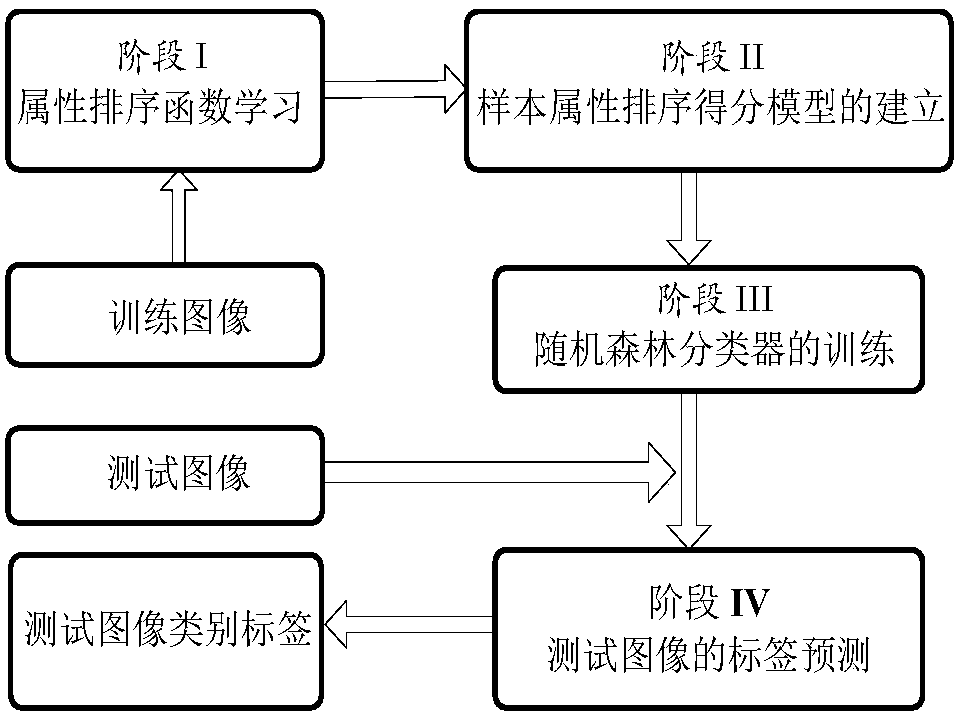A zero-shot image classification method based on relative attribute random forest
A random forest and sample image technology, applied in the field of pattern recognition, can solve problems such as unreasonable, maximum likelihood estimation method error, image classification accuracy, etc.
- Summary
- Abstract
- Description
- Claims
- Application Information
AI Technical Summary
Problems solved by technology
Method used
Image
Examples
Embodiment Construction
[0061] Embodiments of the present invention are described in detail below, examples of which are shown in the drawings, wherein the same or similar reference numerals denote the same or similar elements or elements having the same or similar functions throughout. The embodiments described below by referring to the figures are exemplary only for explaining the present invention and should not be construed as limiting the present invention.
[0062] Zero-shot image classification methods based on relative attribute random forests, such as image 3 shown, including the following steps:
[0063] Step 1: If Figure 4 In (1), given the underlying features of the known class image and the class label set {x 1 ,x 2 ,...,x S ;y 1 ,y 2 ,...,y S}, the underlying feature set of unknown class images {z 1 ,z 2 ,...,z U}, the ordered attribute pair set {O 1 ,...,O M}, the set of similar attribute pairs of known class images {S 1 ,...,S M}, the number T of random trees and the s...
PUM
 Login to View More
Login to View More Abstract
Description
Claims
Application Information
 Login to View More
Login to View More - R&D
- Intellectual Property
- Life Sciences
- Materials
- Tech Scout
- Unparalleled Data Quality
- Higher Quality Content
- 60% Fewer Hallucinations
Browse by: Latest US Patents, China's latest patents, Technical Efficacy Thesaurus, Application Domain, Technology Topic, Popular Technical Reports.
© 2025 PatSnap. All rights reserved.Legal|Privacy policy|Modern Slavery Act Transparency Statement|Sitemap|About US| Contact US: help@patsnap.com



